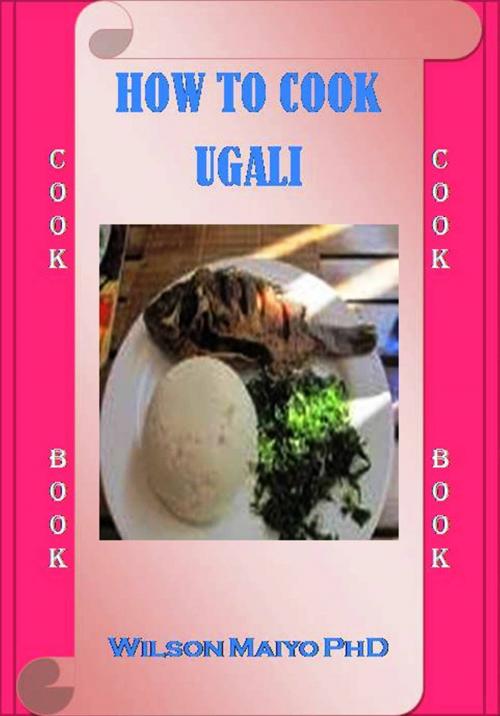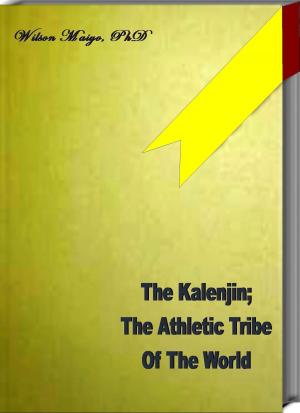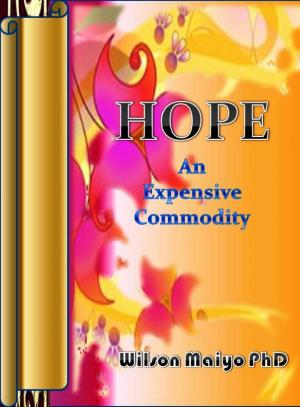| Author: | Wilson Maiyo Ph.D | ISBN: | 9781310797675 |
| Publisher: | Wilson Maiyo Ph.D | Publication: | December 8, 2014 |
| Imprint: | Smashwords Edition | Language: | English |
| Author: | Wilson Maiyo Ph.D |
| ISBN: | 9781310797675 |
| Publisher: | Wilson Maiyo Ph.D |
| Publication: | December 8, 2014 |
| Imprint: | Smashwords Edition |
| Language: | English |
We all live to eat, and from our diverse cultures, we soon learn that nearly all sorts of stuff are edible in the world such that Paul, he the writer of the epistles was apt to say another man’s food is the poison of another! We live by our own or in groups and we develop a tendency to savor particular delicacies because of those around us. However, for those who travel far and wide the knowledge of the practicability of eating all sorts of stuff to survive often linger in the horizon. People eat worms, insects, reptiles, carnivores, herbivores, slugs and amphibians. Before you think a certain kind of food is for the poor, bad or inedible, take time to rethink your position. This small book is about an African food stuff called UGALI. Ugali per se is not a delicious food, but I can vouch for its nourishment to the human body over the ages. The tongue can be tamed to like the food. If you are an urbanite, you may do well to find out from the miller’s packaging if your brand was organically bread. If you choose to plant your own maize, it is best to understand the climatic conditions of your region. Maize plants are great feeders and are easily affected by the environment. However, the joy of seeing your maize grow over the next 3-6 months depending on the high breed is something captivating. Just imagine the process, placing the seed in the ground, watching it sprout in a week, taking care of its growth, watching it dry, harvesting, shelling, drying the grain, getting it ground, cooking your ugali and then eat it!
We all live to eat, and from our diverse cultures, we soon learn that nearly all sorts of stuff are edible in the world such that Paul, he the writer of the epistles was apt to say another man’s food is the poison of another! We live by our own or in groups and we develop a tendency to savor particular delicacies because of those around us. However, for those who travel far and wide the knowledge of the practicability of eating all sorts of stuff to survive often linger in the horizon. People eat worms, insects, reptiles, carnivores, herbivores, slugs and amphibians. Before you think a certain kind of food is for the poor, bad or inedible, take time to rethink your position. This small book is about an African food stuff called UGALI. Ugali per se is not a delicious food, but I can vouch for its nourishment to the human body over the ages. The tongue can be tamed to like the food. If you are an urbanite, you may do well to find out from the miller’s packaging if your brand was organically bread. If you choose to plant your own maize, it is best to understand the climatic conditions of your region. Maize plants are great feeders and are easily affected by the environment. However, the joy of seeing your maize grow over the next 3-6 months depending on the high breed is something captivating. Just imagine the process, placing the seed in the ground, watching it sprout in a week, taking care of its growth, watching it dry, harvesting, shelling, drying the grain, getting it ground, cooking your ugali and then eat it!


![Cover of the book On-Line Penny Stocks Trading [On-line Trading In Penny Worth Stocks] by Wilson Maiyo Ph.D](https://www.kuoky.com/images/2015/february/300x300/9781310804687-dV8A_300x.jpg)












